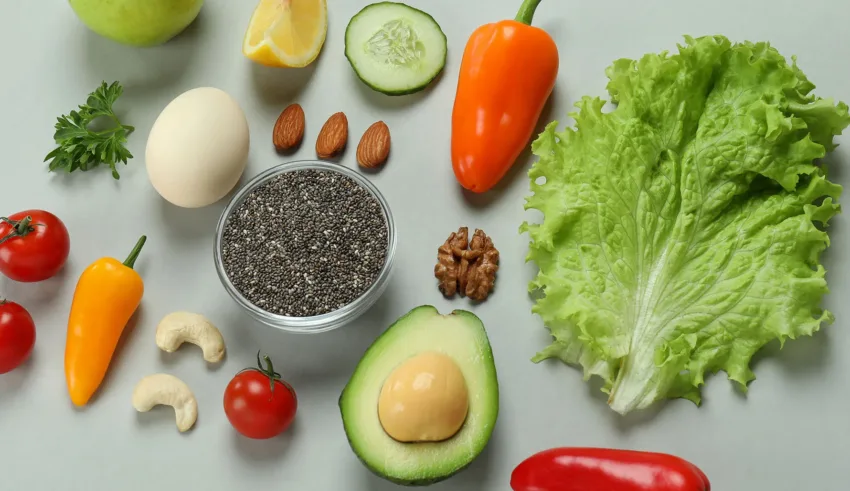
We all want to have healthy, radiant skin, but achieving that flawless complexion can sometimes seem like an impossible feat. While we may try all sorts of skin care products and treatments, we often overlook one crucial aspect of skin health: our nutrition and lifestyle choices. What we eat, how we move, and even how we manage stress can all have a significant impact on the health and appearance of our skin.
In this article and in collaboration with Dr. Mohamed AbouHadeed, we’ll explore the fascinating ways that nutrition and lifestyle choices affect your skin, and uncover the secrets to achieving a glowing, healthy complexion from the inside out. So, get ready to learn how to nourish your skin and boost your overall well-being with simple, yet effective lifestyle changes.
The Relationship Between Nutrition and Skin Health
When it comes to skin health, what you put into your body matters just as much as what you put on it. Your skin is your body’s largest organ, and it requires a wide range of nutrients to stay healthy and function properly. Without adequate nutrition, your skin can become dry, dull, and prone to breakouts. I always advise my patients to take care of their skin by eating a diet rich in antioxidants, vitamins, and plant-based foods, and by reducing the number of processed foods and alcohol,” states Dr. Mohamed AbouHadeed.
Here are some of the most important nutrients for skin health and the foods that contain them:
1- Vitamin C
This antioxidant vitamin plays a crucial role in collagen synthesis, which is essential for healthy skin. Vitamin C also helps protect your skin from sun damage and environmental pollutants. Good sources of vitamin C include citrus fruits, strawberries, kiwi, bell peppers, and broccoli.
2- Vitamin E
Vitamin E is another antioxidant vitamin that helps protect your skin from free radical damage and oxidative stress. It also helps moisturize your skin and reduce inflammation. Good sources of vitamin E include nuts, seeds, avocados, and leafy greens.
3- Collagen
Collagen is a protein that is found in your skin, bones, and connective tissues. It plays an important role in maintaining the elasticity and firmness of your skin. As you age, your body produces less collagen, which can lead to wrinkles and sagging skin. Taking collagen supplements or eating collagen-rich foods like bone broth, fish, and chicken can help support healthy skin.
4- Vitamin D
Vitamin D is important for healthy skin because it helps to regulate cell growth and repair. It’s also essential for maintaining strong bones. Your body can produce vitamin D when your skin is exposed to sunlight, but many people don’t get enough sun exposure. Taking a vitamin D supplement can help support healthy skin.
5- Omega-3 fatty acids
These healthy fats are essential for your skin health, as they help keep your skin moisturized and supple. Omega-3s also have anti-inflammatory properties, which can help reduce redness and irritation. Good sources of omega-3s include fatty fish, such as salmon and sardines, as well as chia seeds, and walnuts.
6- Zinc
This essential mineral is involved in a wide range of cellular processes, including cell growth and division. Zinc also helps regulate oil production in your skin and has anti-inflammatory properties. Good sources of zinc include oysters, beef, chicken, and pumpkin seeds.
7- Water
Staying hydrated is essential for your skin health, as water helps flush toxins out of your body and keeps your skin moisturized. Aim to drink at least eight glasses of water per day, and try to limit your intake of sugary or caffeinated beverages, which can dehydrate your skin.
Can certain types of food contribute to skin problems such as acne or rosacea?
According to Dr. Mohamed AbouHadeed, acne is strongly associated with the consumption of dairy products and an unhealthy diet high in calories, fats, and refined carbohydrates. Fast food, such as hamburgers, nuggets, hot dogs, fries, sodas, and shakes, are the mainstays of an unhealthy diet and can increase the risk of acne.
On the other hand, Dr. Mohamed AbouHadeed indicates that the most common triggers for rosacea are alcohol, spicy foods, foods containing cinnamaldehyde (tomatoes, citrus fruits, chocolate), hot drinks, and foods rich in histamine (aged cheeses, wine, processed meats).
The Relationship Between Lifestyle Choices and Skin Health
In addition to nutrition, your lifestyle choices can also have a significant impact on your skin health. Here are some of the most important lifestyle factors to consider:
1- Exercise
Regular physical activity is not only good for your overall health, but it can also benefit your skin. Exercise helps increase blood flow to your skin, which can help nourish it and keep it looking healthy. It also helps reduce stress, which is a common trigger for skin problems like acne.
2- Sleep
Getting enough sleep is crucial for skin health, as it allows your skin to repair and regenerate. Lack of sleep can lead to dark circles, puffiness, and dull, lifeless skin. Aim to get at least 7-8 hours of sleep per night, and try to establish a regular sleep schedule.
3- Stress management
Mohamed AbouHadeed stresses that chronic stress damages the collagen in your skin. Collagen is a vital protein that gives structure and elasticity to the skin. Damage to collagen puts you at risk for premature aging and the appearance of fine lines and wrinkles.
Finding healthy ways to manage stress, such as through meditation, yoga, or deep breathing, can help keep your skin looking and feeling its best.
4- Smoking
Smoking is bad for your skin. It can cause wrinkles and age spots, and it can also contribute to skin cancer. If you smoke, quitting can help improve the health of your skin.
5- Sun Exposure
Sun exposure can cause damage to your skin, including wrinkles, age spots, and even skin cancer. Protecting your skin from the sun is essential for maintaining healthy skin. Always wear sunscreen when you’re outside, even on cloudy days.
6- Alcohol consumption
Excessive alcohol consumption can dehydrate the skin, leading to a dull and dry complexion.
7- Skin care routine
A good skin care routine that includes cleansing, moisturizing, and using products appropriate for your skin type can help improve skin health and prevent issues like acne and premature aging.
Conclusion
Your skin is a reflection of your overall health, and what you eat and how you live can have a significant impact on the health and appearance of your skin. Eating a healthy diet that is rich in fruits, vegetables, protein, and healthy fats can help keep your skin looking its best.
Avoiding too much sugar and alcohol can also help keep your skin healthy. Protecting your skin from the sun, quitting smoking, getting enough sleep, exercising regularly, and managing your stress levels can all help improve the health of your skin.
It’s important to remember that everyone’s skin is unique, and what works for one person may not work for another. However, by focusing on a healthy lifestyle that includes a balanced diet, regular exercise, and stress management, you can help improve the overall health and appearance of your skin.
Last Updated on February 16, 2024









